COVID shutdown cuts crashes and road repairs, but more people die
Great Lakes Echo
http://greatlakesecho.org/2020/11/23/covid-shutdown-cuts-crashes-and-road-repairs-but-more-people-die/
Great Lakes Echo
http://greatlakesecho.org/2020/11/23/covid-shutdown-cuts-crashes-and-road-repairs-but-more-people-die/

PFAS, short for per- and polyfluoroalkyl substances, are a group of widespread man-made chemicals that don’t break down in the environment or the human body and have been flagged as a major contaminant in sources of water across the country.
Keep up with PFAS-related developments in the Great Lakes area.
Great Lakes Now
https://www.greatlakesnow.org/2020/11/pfas-news-roundup-michigan-wisconsin-study-vaccine/
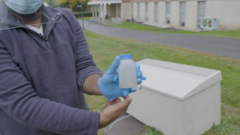
Scientists at dozens of colleges and universities around the country are hoping early detection of COVID-19 infections can come from a not-so-glamorous sampling process.
With collection devices set up in campus sewer systems, researchers are sampling waste from residence halls and other buildings for evidence of the virus.
Great Lakes Now
https://www.greatlakesnow.org/2020/11/campus-covid-19-sewage-testing-early-infections/

For President-elect Joe Biden, the environment and climate change as campaign issues weren’t tucked away in an obscure position paper. Neither was his intent to focus on environmental justice if elected.
Biden also put a spotlight on President Trump’s rollback via executive order of nearly 100 environmental protections in his four years.
Great Lakes Now
https://www.greatlakesnow.org/2020/11/rollbacks-climate-justice-environmental-attorney-president-elect-biden/

By Paula Gardner, Bridge Michigan, through the Institute for Nonprofit News network
Doubling the size of a factory during a global pandemic may not fit a traditional business plan.
But Shaggy’s Copper Country Skis is based in Northern Michigan, where it’s making a product that helps to define the winter economy for the ski-maker’s home in Boyne City and across the region.
Great Lakes Now
https://www.greatlakesnow.org/2020/11/covid-19-outdoor-recreation-michigan-ski-industry/
Just as she regularly wrestles 50-pound boxes of clay into her studio to shape into vessels adorned with symbols of nature as part of her artistry-turned-business, Sharon Moen—as the newest member of Wisconsin Sea Grant—has some molding to do in her role as outreach specialist focused on the Eat Wisconsin Fish initiative.
Moen will be fashioning the parts of the existing initiative into new forms. She’ll fire them into rejuvenated and brand-new tools to serve commercial fishermen, charter fishermen, processors and aquaculture operators, as well as educating consumers, retailers and those in the culinary world about the benefits of local, healthy and delicious Wisconsin fish.

This is all, of course, to be done against the backdrop of a once-in-lifetime pandemic that is affecting businesses of all types—particularly hitting hard those tied to the fish supply chain—and reaching into family homes where people are making food decisions in a disrupted world.
A Washington Post story from late spring noted that with restaurants closed the nation’s fisheries, across all regions and species, have reported sales slumps as high as 95 percent. Some species are considered more luxury choices and with the economic hit from Covid-19 perhaps grocery budgets aren’t putting fish on the household menu. Americans spend more than twice as much on seafood in restaurants than they do at home.
Into this scenario steps Moen, who may be new to Wisconsin Sea Grant but is far from being new to serving Sea Grant stakeholder needs and immersing herself in Great Lakes issues having spent 21 years with Minnesota Sea Grant. She was the program’s senior science communicator prior to her departure from that program in April of this year.
“It’s an honor to be a public servant again,” said Moen. “The pandemic has revealed many things about the U.S., including how easily our food systems can be disrupted. I’m ready to channel creativity and moxie toward helping people value Wisconsin’s commercial fisheries and fish-producing operations in ways that support jobs, the state’s food independence, the environment and human health. I’m excited to be joining a great team of Sea Grant’s staff and researchers on this important project.”
Moen will tackle a needs assessment of various sectors to inform a strategic plan on how to best proceed to address challenges, perhaps through webinars, one-on-one communication social media and/or the Eat Wisconsin Fish website. She’ll rely on some previously funded Sea Grant research on fish farmers, as well as another on consumer perception on aquaculture.
“We are really excited about all the relevant experience that Sharon brings to Wisconsin Sea Grant. She has worked on past successful outreach and communications campaigns to promote farm-raised and wild-caught fish, including chef competitions and public tastings,” Sea Grant Assistant Director for Extension David Hart said. “Sharon is a gifted writer and contributed to a strategic plan for aquaculture in Minnesota. She has extensive connections throughout the Sea Grant network and will be able to hit the ground running.”
About that pottery, in her off hours, Moen will continue to create objects of utility and beauty, as well as embracing macro projects. She is currently making 140 specialty tiles for a kachelofen, a German masonry stove that will heat a vacation home on one of Wisconsin’s many lakes. This proves, once more, Moen’s skill at merging two careers and two passions from the clay of the Earth and the wonders of water.
The post Meet Sharon Moen, new Eat Wisconsin Fish outreach specialist first appeared on Wisconsin Sea Grant.
News Releases – Wisconsin Sea Grant
News Releases – Wisconsin Sea Grant
https://www.seagrant.wisc.edu/news/meet-sharon-moen-new-eat-wisconsin-fish-outreach-specialist/
Great Lakes Echo
http://greatlakesecho.org/2020/11/10/project-begins-testing-sewage-for-covid-19-across-michigan/
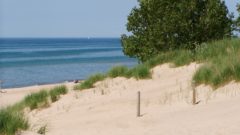
Great Lakes parks have always been popular among outdoor enthusiasts. This summer, however, pandemic-weary residents on both sides of the border flocked to them – many for the first time – just as services such as campsites, visitors’ centers, washrooms and interpretive programs were closed to help contain COVID-19.
The spike in summertime numbers was doubly challenging this year as the lakes’ record-high water levels have washed away some beaches and trails.
Great Lakes Now
https://www.greatlakesnow.org/2020/10/summertime-spike-great-lakes-parks-covid-19/

From lead pipes to PFAS, drinking water contamination is a major issue plaguing cities and towns all around the Great Lakes. Cleaning up contaminants and providing safe water to everyone is an ongoing public health struggle.
Keep up with drinking water-related developments in the Great Lakes area.
Click on the headline to read the full story:
Illinois:
In March, the Illinois Commerce Commission announced an emergency moratorium on utility shut-offs to protect customers during the COVID-19 health crisis, but most major Illinois providers resumed service disconnections by late summer.
Great Lakes Now
https://www.greatlakesnow.org/2020/10/drinking-water-illinois-covid-19-coronavirus-ontario/

By Robin Erb, Bridge Michigan, through the Institute for Nonprofit News network
The Great Lakes News Collaborative includes Bridge Michigan; Circle of Blue; Great Lakes Now at Detroit Public Television; and Michigan Radio, Michigan’s NPR News Leader; who work together to bring audiences news and information about the impact of climate change, pollution, and aging infrastructure on the Great Lakes and drinking water.
Great Lakes Now
https://www.greatlakesnow.org/2020/10/covid-testing-lead-poisoning-michigan/

By Brett Walton, Circle of Blue
The Great Lakes News Collaborative includes Bridge Michigan; Circle of Blue; Great Lakes Now at Detroit Public Television; and Michigan Radio, Michigan’s NPR News Leader; who work together to bring audiences news and information about the impact of climate change, pollution, and aging infrastructure on the Great Lakes and drinking water.
Great Lakes Now
https://www.greatlakesnow.org/2020/10/michigan-20-million-customer-water-debts/

By Brett Walton, Circle of Blue
The Great Lakes News Collaborative includes Bridge Michigan; Circle of Blue; Great Lakes Now at Detroit Public Television; and Michigan Radio, Michigan’s NPR News Leader; who work together to bring audiences news and information about the impact of climate change, pollution, and aging infrastructure on the Great Lakes and drinking water.
Great Lakes Now
https://www.greatlakesnow.org/2020/10/house-democrats-cdc-halt-water-shutoffs-pandemic/
Great Lakes Echo
http://greatlakesecho.org/2020/10/09/engaging-with-nature-and-just-getting-outside-help-in-the-age-of-covid-19/
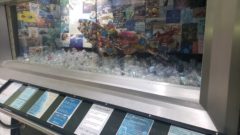
An array of more than 80 marine-debris-turned-art works will be making another Great Lakes stop, adding a lake sturgeon sculpture when it’s installed at a Wisconsin site next year.
Made entirely of plastic trash, these larger-than-life figures have realistic designs. They come as part of the traveling exhibit, Washed Ashore, which aims to educate people about plastic pollution.
Great Lakes Now
https://www.greatlakesnow.org/2020/09/trash-fish-marine-debris-sculptures-great-lakes-aquariums-museums/
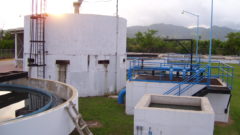
YPSILANTI, Mich. (AP) — Eastern Michigan University will test campus wastewater for the COVID-19 virus and other signs of infectious diseases.
The testing, part of the school’s return-to-campus plan, is intended to track the presence of the coronavirus in wastewater flowing from residence halls and apartment complexes.
The monitoring might provide early detection of asymptomatic cases of the virus, according to the school.
Great Lakes Now
https://www.greatlakesnow.org/2020/09/ap-emu-campus-wastewater-covid-19/

The Toledo Zoo’s popular lake sturgeon stocking event won’t happen this year, though a pause in the program – thanks to the international COVID-19 pandemic – won’t hurt the project.
“In a nutshell, our partners out of the U.S. Fish and Wildlife Service in Alpena, Michigan, and Genoa, Wisconsin, are the ones who collect the eggs,” explained Kent Bekker, director of conservation at the zoo.
Great Lakes Now
https://www.greatlakesnow.org/2020/09/sturgeon-stocking-covid-19-release-program/
The City of Toledo, Department of Neighborhood awarded the Department of Public Utilities (DPU) $50,000 in support of full lead line repair to residents who are currently living without running water in their home. The funding comes from a Community Development Block Grant (CDBG), making it possible for homeowners to receive financial aid in repairing damaged pipes leading into their home which otherwise would abstain them from water reconnection. Working together with the community ensures that residents are protected and supported by the lead line repair program as it relates to equitable opportunity, water security, and access to clean drinking water.
The Toledo Community Water Council has played a key role in fighting against water injustices to ensure that the decrease in water disparities is parallel with inclusion and equitable treatment of Toledo ratepayers. The Toledo Community Water Council has taken the initiative to collaborate with the municipality and local institutions to identify challenges as they arise as well as uncovering solutions to better serve the community during the lead line repair process. For example, the Council engages homeowners through education on the present opportunities of water restoration through getting the lead line repaired, pinpointing homes that need the service while collecting existing data from the institutions and municipalities for better accuracy, and holistically support the work needed to replace outdated water infrastructure for residents struggling for water quality within their homes. Toledo, once a city only willing to engage in partial lead line replacement, which could inadvertently increase the lead content within the homeowners’ water, heeds the collective knowledge and insight of the Toledo Community Water Council. When DPU locates a home with lead pipes they are prepared to replace them. The community has been persistent in advocating for full lead line repair, and those families living without water and with lead lines not yet located will also receive full lead line replacement in addition to repairs. The Toledo Community Water Council will also be providing oversight and community support to the DPU to ensure their actions are held accountable and all residents are aware of opportunities.
Blog – Freshwater Future
https://freshwaterfuture.org/uncategorized/toledo-water-council-fully-supports-the-50000-grant-for-full-lead-line-repair/

Keep up with energy-related developments in the Great Lakes area with Great Lakes Now’s biweekly headline roundup.
In this edition: Michigan’s Bay County to lose millions in tax revenue with closure of coal plant; a COVID-19 study looking at energy crises cites rural areas and tribal nations in Michigan; and Ohio legislators begin the repeal process for controversial House Bill 6.
Great Lakes Now
https://www.greatlakesnow.org/2020/09/great-lakes-energy-ohio-nuclear-michigan-coal-crisis/
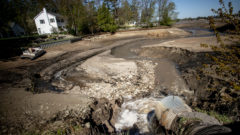
By David Eggert, Associated Press Writer
LANSING, Mich. (AP) — Michigan lawmakers on Tuesday began approving a budget bill that would authorize the federal government’s supplemental $300-a-week unemployment benefit during the coronavirus pandemic and provide $6 million in state funding for costs related to devastating flooding in the Midland area.
Great Lakes Now
https://www.greatlakesnow.org/2020/09/ap-michigan-house-jobless-benefits-flood-costs/
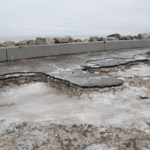
Alongside the illnesses, deaths and closures caused by COVID-19, the threat of climate change still hangs over communities across the Great Lakes region and around the world. And the people and organizations fighting against climate change and for environmental justice have found themselves caught between these two threats to public health.
Great Lakes Now
https://www.greatlakesnow.org/2020/08/intersecting-crises-climate-change-justice-covid-19/
Great Lakes Echo
http://greatlakesecho.org/2020/08/31/pandemic-impacts-library-services-budgets-in-long-term/
During this pandemic many of us have had to take our work home with us, and now that children are returning to school they will be, too. Everybody is at home battling with their own stress, so dealing with others too can be tough. It becomes more daunting when days just can’t seem to go right. You know what I am talking about. Confined within the same four walls everyday can start to feel as if they are closing in when there is so much that “has” to be done. By that time, anxiety rises, motivation withers and you want to throw your hands up, curl up in bed and eat your favorite dessert, mine is ice cream, while watching Netflix wishing all deadlines and projects go away.
We’ve all been there but during the pandemic it has a chance to happen a lot more often. The reality is we will be knocked off our square and being able to recognize when we are knocked off, provides us an opportunity to realign with our internal self. Without peace, we can’t think straight. Without thinking straight, let’s be honest, we’re no help to anyone, including ourselves. So what can we do to quiet the madness inside and keep our hands from ripping out our hair? (Though I’m bald already.) We must incorporate activities that bring us peace during our work day, and practice them daily. Practicing these activities daily ensures they become second nature and ensures the practice of self-care, which some would say we need more than ever. The holy grail to the consistent high level productivity you expect from yourself is self-care. Take care of your body, mind, and spirit, and in turn, they will take care of you. The key is to understand that you must give to yourself before you give yourself to others. Sounds too simple? Perhaps, but it is as easy as making a choice.
If you’re looking for ideas to recenter yourself and allow time to recharge and re-calibrate yourself to be the best you for others read the following suggestions and see what works best for you.

Meditation: a way to really center yourself is finding a relaxing spot, sitting down, closing your eyes and just breath. It may not make sense since most of us have a million thoughts passing by, but next time, sit down and focus on your breathing in and out while observing your thoughts as they come and go. This will clear the fog in your mind and has been proven to reduce anxiety while boosting clarity.

Self Talk: You ever wake up in the morning, stub your toe, and the first thoughts you have are unhappy? Those negative thoughts can create a snowball effect with the expectation that the rest of the day will be a bad day. I invite you to wake up and before you grab your phone or think of the million and one things you have to do that day, to write down or say to yourself at least three things you are grateful for and try this for at least 10 days. Practicing gratitude opens the door to more and better relationships, improves physical and psychological health, enhances empathy, reduces aggression, and improves sleep and self-esteem.

Being totally focused on what’s in front of you: I know a lot of people take pride in being multi-taskers but I will, respectfully, ask you guys to cut the crap. That may be one of the reasons why you feel overwhelmed at times. You don’t need to do it all at once. Take the most important task in front of you and put all of your focus on it and finish it before moving to the next one. You will experience a dramatic change in your productivity.
These are only a few options out of thousands to choose from. I invite you to begin thinking about what you can do for yourself. In this productive society we are constantly thinking about what we can do better at work, for our family, and for our friends. Now it’s the time to think about the most important person — yourself. Take care of yourself and enjoy the benefits of a more relaxed, centered you. I guarantee others will.

Written by Brandon Tyus, Policy and Community Program Associate
Blog – Freshwater Future
https://freshwaterfuture.org/uncategorized/a-closer-look-at-self-care-during-covid-19/
This week: U.S. EPA Weakens Rules for Toxic Waste Ponds for Coal-fired Power Plants + New York Adds Water Safeguards To Remove Emerging Contaminants + Action Request–Ask Legislators to Include Water Service in COVID Relief Package + Apply for a Freshwater Future Grant Today
The U. S. Environmental Protection Agency (EPA) adopted rules that favor electric utilities extending the use of toxic coal ash ponds for decades. A recent assessment found 91 percent of the ponds are leaching contaminants into drinking water and groundwater. The new regulations are filled with loopholes; some coal ash ponds will remain until 2038 though the initial cleanup deadline was set for 2021. With majority coal ash ponds surrounding Environmental Justice communities, who regardless of race, color, national origin or income are entitled to equal protection from environmental harms and risks, will face health consequences.
New York Adds Water Safeguards For Some Emerging ContaminantsTesting standards are raised in New York to address three emerging contaminants found in drinking water – PFOA, PFOS (“forever chemicals”), and 1,4-dioxane. All water systems are required to test for these harmful chemicals and remove them from the drinking water if above the new standards (10 parts per trillion for PFOA and PFOS and 1 part per billion for 1,4-dioxane). Although we understand there is more to be done around the many other emerging contaminants, Freshwater Future applauds all the organizations and community members that worked to improve regulations on water quality. Comparison Chart of State and Canadian Protections Take Action: Ask Legislators to Include Water Service in COVID Relief PackageHandwashing is our first line of defense against the spread of COVID-19, and access to clean and safe tap water is a basic human need to protect individuals, families and communities. Please urge your Congresspeople to include the following in the COVID relief package:
No one should have to worry about how they will wash their hands and masks, cook their food, and get their drinking water. Please take action today. Apply for a Freshwater Future Grant TodayFor 25 years, Freshwater Future has provided grants to community and grassroots groups supporting advocacy efforts to protect or improve drinking water, rivers, lakes, wetlands, shorelines, and groundwater in the Great Lakes region. Check-out Freshwater Future’s 2020 grant opportunities guidelines to see if your organization is eligible. The deadline for Fall Project grant applications is September 30, 2020. Want to learn more? Join us for an informal webinar on August 19, 2020 at noon, register here. |
Blog – Freshwater Future
https://freshwaterfuture.org/uncategorized/freshwater-weekly-august-26-2020/
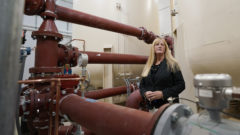
By Ellen Knickmeyer, Cathy Bussewitz, John Flesher, Matthew Brown and Michael Casey, Associated Press Writers
Thousands of oil and gas operations, government facilities and other sites won permission to stop monitoring for hazardous emissions or otherwise bypass rules intended to protect health and the environment because of the coronavirus outbreak, The Associated Press has found.
Great Lakes Now
https://www.greatlakesnow.org/2020/08/ap-thousands-allowed-bypass-environmental-rules-pandemic/

By Matt Martinez, Milwaukee Neighborhood News Services, through the Institute for Nonprofit News network
The city is significantly behind in its goal to replace 1,100 lead pipes by the end of the year, exacerbated in part by the ongoing pandemic, Milwaukee officials say.
As of Aug.
Great Lakes Now
https://www.greatlakesnow.org/2020/08/milwaukee-significantly-behind-lead-pipes-by-end-of-year/

By Enrique Saenz, Indiana Environmental Reporter
People across the U.S. are taking to the streets to protest racial inequity, saying that people of color experience a wholly different experience in the country than white Americans. New findings from a statewide survey indicate that the disparity extends to how Hoosiers of different races perceive climate change and its risks.
Great Lakes Now
https://www.greatlakesnow.org/2020/08/race-perception-vulnerabilities-climate-change-indiana/
Like others in so many economic sectors hit hard by the coronavirus pandemic, Wisconsin aquaculture operators and commercial fishers are looking for ways to adapt their products and strategies in a disrupted marketplace.
The National Sea Grant College Program, in which Wisconsin Sea Grant is a participant, recently committed resources to coastal states to help those affected by COVID-19. In Wisconsin, that response is to structure and hire for a new, one-year non-renewable marketing and outreach position focused on the Eat Wisconsin Fish Initiative. Applications will be accepted until 11:55 p.m. CST Friday, Aug. 28.
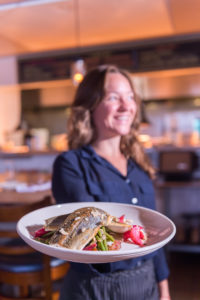
Photo by David Nevala
The Eat Wisconsin Fish initiative kicked off five years ago and connects Great Lakes fishermen and aquaculture operators with consumers, restauranteurs and retailers. It seeks to capitalize on the premise of eating locally and supporting local businesses. The United States imports more than 90 percent of its seafood and this effort would inspire more domestic production and consumption, along with educating Wisconsin consumers about the health benefits of fish.
News Releases – Wisconsin Sea Grant
News Releases – Wisconsin Sea Grant
https://www.seagrant.wisc.edu/news/sea-grant-hiring-for-a-marketing-and-outreach-position/

Mass water shutoffs in Detroit following the city’s bankruptcy proceedings brought the issue of water affordability and water shutoffs into public notoriety in the U.S. in 2014.
The threat of COVID-19 brought the issue back to the forefront as the CDC urged people to wash their hands frequently.
Great Lakes Now
https://www.greatlakesnow.org/2020/08/water-debt-environmental-justice/
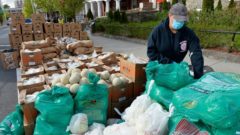
By Jessica Heiges, University of California, Berkeley and Kate O’Neill, University of California, Berkeley, The Conversation
is an independent and nonprofit source of news, analysis and commentary from academic experts.
COVID-19 is changing how the U.S. disposes of waste. It is also threatening hard-fought victories that restricted or eliminated single-use disposable items, especially plastic, in cities and towns across the nation.
Great Lakes Now
https://www.greatlakesnow.org/2020/07/covid-19-single-use-plastics/

INDIANAPOLIS (AP) — At least two more Indiana counties on Friday joined the growing list of local governments in the state mandating the wearing of face masks while in public as the state has seen recent growth in the number of coronavirus hospitalizations.
The new requirements were adopted by officials in Monroe County, home to Bloomington and Indiana University’s main campus, and northern Indiana’s LaPorte County.
Great Lakes Now
https://www.greatlakesnow.org/2020/07/ap-indiana-counties-covid-19-mandating-face-masks/

PFAS, short for per- and polyfluoroalkyl substances, are a group of widespread man-made chemicals that don’t break down in the environment or the human body and have been flagged as a major contaminant in sources of water across the country.
Keep up with PFAS-related developments in the Great Lakes area.
Great Lakes Now
https://www.greatlakesnow.org/2020/07/pfas-michigan-wisconsin-legislation-foam-covid-19/
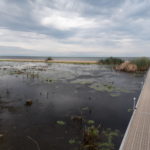
Great Lakes states and provinces have opened up their parks to overnight campers again now that COVID-19 closures have been lifted.
In March, national parks were closed in Canada, along with Ontario provincial parks. In the U.S., while parks remained open to visitors, facilities and many campgrounds were closed to the public.
Great Lakes Now
https://www.greatlakesnow.org/2020/07/visitors-flock-parks-beaches-lakes-provinces-states-reopen/
This week: Legislation to Address Water Access Focus of All About Water Webinars + Governor Whitmer Extends Water Reconnection To Year’s End + Great Lake Water Temperatures Spike Due to Heat + Michigan Airports Receive $2.5 Million In Grants For PFAS Testing + Wastewater Can Show Early Detection of COVID-19 Outbreaks
Hosted by Freshwater Future, the All About Water Webinars focused on policy solutions to address access to affordable, safe drinking water and how we can work together to ensure that water is turned on, stays on and is affordable. Visit our website to view the slides from presenters and links to recorded sessions.
Water as a Human Right Legislation Gaining Bipartisan Support in D.C.
Representative Rashida Tlaib shared on the All About Water Webinar that Republicans and Democrats are sponsoring legislation to continue moratoriums on water shutoffs while we are still fighting this pandemic. Water is essential for life and protecting public health. No one person should ever have to worry about whether they are able to put food on the table or have water flowing from their taps. You can urge your Congressional member today to support and work with colleagues on both sides of the aisle to swiftly pass the Water Affordability, Transparency, Equity and Reliability (WATER) Act and the Emergency Water is a Human Right Act.
Governor Whitmer Extends Water Re-connection Order To Year’s EndThe number one preventive measure taken to fight against COVID-19 is washing our hands. Gov. Whitmer extended the water reconnection order until the end of the year to help people do exactly that. We know there are still people who have not been reconnected, and that there are groups including Freshwater Future working to change that. Great Lake Water Temperatures Spike Due to HeatSeveral days of sunny, hot, calm weather resulted in large portions of the Great Lakes warming significantly in some places over ten degrees in just five days. Astounding visuals and video forecast of how and where the Great Lakes temperatures have increased can be seen here. Michigan Airports Receive $2.5 Million In Grants For PFAS TestingFire-fighting foams containing the toxic chemical called PFAS have been used for decades to put out jet fuel fires. Fire department training and use of foams contaminated groundwater and drinking water. The Michigan PFAS Action Response Team is awarding municipal airports throughout the state grant funding for testing of PFAS contamination. Areas like Pellston, MI have been issued $250,000 of this grant due to known impacts on residential wells. Wastewater Can Show Early Detection of COVID-19 OutbreaksResearching human waste has proven to be an effective model for tracing and pinpointing COVID-19 infected populations before the area experiences an uptick in cases. In particular, targeting the asymptomatic group that unknowingly carries the virus and spreads it to more vulnerable populations is what makes this research that much more valuable. |
Blog – Freshwater Future
https://freshwaterfuture.org/uncategorized/freshwater-weekly-july-13-2020/
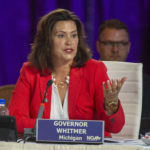
LANSING, Mich. (AP) — Protections to prevent water shutoffs during the coronavirus pandemic are being extended to the end of the year under an order signed Wednesday by Gov. Gretchen Whitmer.
Since March, 2,477 Michiganders have had their water restored through a grant to help utilities reconnect consumers.
Great Lakes Now
https://www.greatlakesnow.org/2020/07/ap-water-shutoff-extended-michigan-governor/
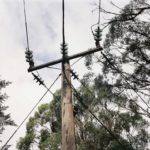
Keep up with energy-related developments in the Great Lakes area with Great Lakes Now’s biweekly headline roundup.
In this edition: 713-mile Rover Pipeline at center of legal dispute between Ohio EPA and Ohio Supreme Court; Hi-Crush Inc., frac sand company filing for bankruptcy after reporting negative revenue, defaulting on loans; and Indiana regulators reject utility rate increase request.
Great Lakes Now
https://www.greatlakesnow.org/2020/07/great-lakes-energy-ohio-pipeline-wisconsin-fracking-indiana-regulators/
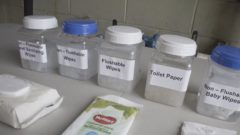
Fatbergs — massive buildups of wipes and hygiene products congealed with greases and oils — make for a cringe-worthy topic. And the damage they cause to sewer systems can be a huge amount of trouble for the people in charge of those sewer systems.
That includes Candice Miller, the Public Works Commissioner in southeast Michigan’s Macomb County.
Great Lakes Now
https://www.greatlakesnow.org/2020/07/legislation-flushable-wipes-court-law-fatberg/

By John Seewer, Associated Press Writer
The U.S. headed into the Fourth of July weekend with many parades and fireworks displays canceled, beaches and bars closed, and health authorities warning that this will be a crucial test of Americans’ self-control that could determine the trajectory of the surging coronavirus outbreak.
Great Lakes Now
https://www.greatlakesnow.org/2020/07/ap-july-fourth-weekend-covid-19/
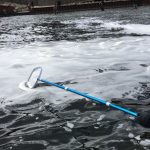
PFAS, short for per- and polyfluoroalkyl substances, are a group of widespread man-made chemicals that don’t break down in the environment or the human body and have been flagged as a major contaminant in sources of water across the country.
Keep up with PFAS-related developments in the Great Lakes area.
Great Lakes Now
https://www.greatlakesnow.org/2020/07/pfas-michigan-foam-pfas-covid-19/

Angel Welke and her husband Paul own and operate Island Airways, the committed aviation service provider for Beaver Island. As such, the Welkes run the air ambulance that serves the island, which is located in the northern part of Lake Michigan and is home to about 600 year-round residents. When the island had a possible COVID-19 patient earlier this year, it was Paul Welke piloting the air ambulance.
Great Lakes Now
https://www.greatlakesnow.org/2020/07/great-lakes-islanders-adapt-covid-19/

In March, COVID-19 brought the Great Lakes economy and society in general to a grinding halt.
Three months later, it’s not yet business as usual and challenges remain.
That’s the consensus of a group of Great Lakes industries and scientific researchers Great Lakes Now first spoke with in April.
Great Lakes Now
https://www.greatlakesnow.org/2020/06/covid-19-great-lakes-shipping-charter-boats-research/
Thank you to the Students of the Collaborative Digital Arts Development class taught by Professor Bonnie Mitchell at Bowling Green State University for producing animated public service announcements for Freshwater Future to highlight important water and public health issues! View their creative works below.
COVID-19 Mask Usage & Best Practices
Blog – Freshwater Future
https://freshwaterfuture.org/drinking-water/colloaboration-with-bowling-green-state-university-students-created-important-water-and-public-health-psas/
Thank you to the Students of the Collaborative Digital Arts Development class taught by Professor Bonnie Mitchell at Bowling Green State University for producing animated public service announcements for Freshwater Future to highlight important water and public health issues! View their creative works below.
COVID-19 Mask Usage & Best Practices
Blog – Freshwater Future
https://freshwaterfuture.org/drinking-water/colloaboration-with-bowling-green-state-university-students-created-important-water-and-public-health-psas/
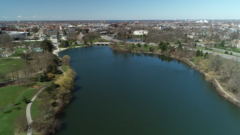
By Daniel Baldwin Hess, University at Buffalo, The State University of New York and Alex Bitterman, Alfred State College of Technology, The State University of New York, The Conversation
is an independent and nonprofit source of news, analysis and commentary from academic experts.
The United States and Canada have long enjoyed a stable relationship.
Great Lakes Now
https://www.greatlakesnow.org/2020/06/shuttered-canada-us-border-highlights-different-approaches-to-the-pandemic-and-differences-between-the-2-countries/
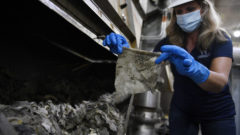
By Claudia Lauer and John Flesher, Associated Press Writers
PHILADELPHIA (AP) — Mayor Jim Kenney kicked off a recent briefing on Philadelphia’s coronavirus response with an unusual request for residents: Be careful what you flush.
Between mid-March, when the city’s stay-at-home order was issued, and the end of April, most of the 19 sewer and storm water pumping stations in Philadelphia had experienced clogs from face masks, gloves and wipes residents had pitched into the potty, Kenney said.
Great Lakes Now
https://www.greatlakesnow.org/2020/06/ap-wipes-and-masks-sewers-storm-drains/

Once left ambiguously up in the air, the rest of the 2020 cruising season in the Great Lakes has been officially postponed until 2021, due largely to preventative measures taken by both American and Canadian ports restricting cruise ship docking to halt the spread of COVID-19.
When one of the largest players in the Great Lakes cruising industry, Victory Cruises, announced it would be cancelling its 2020 itinerary at the end of May, it became much more likely that others would follow suit.
Great Lakes Now
https://www.greatlakesnow.org/2020/06/covid-19-cruise-great-lakes-season-2021/
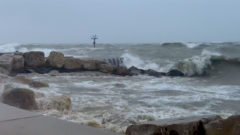
Out of the tragedy that is COVID-19 can come opportunities to improve our lives, our workspace and our environment.
That includes softening the impact we have on natural habitat.
That’s the view of veteran Great Lakes executive Cameron Davis who says, like businesses in big cities that are assessing their space needs, we should pause and assess our impact on the environment.
Great Lakes Now
https://www.greatlakesnow.org/2020/06/green-reset-covid-19-offers-opportunity-for-lighter-environmental-impact/
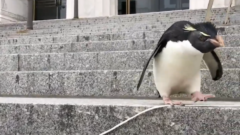
The animals at various aquariums are dealing with their own COVID-19 lockdown struggles as they adjust to new routines, new procedures and a distinct lack of the public, and each animal handles it a little differently.
Thanks to Great Lakes aquariums like Shedd Aquarium in Chicago, the Aquatarium at Tall Ships Landing in Brockville, Ontario, and Belle Isle Conservancy in Detroit, the public can get a peek at the various things staff are doing to keep the animals happy and entertained.
Great Lakes Now
https://www.greatlakesnow.org/2020/05/animal-quiz-great-lakes-aquarium-animal-covid-19-quarantine/
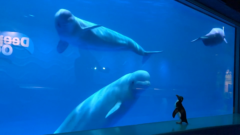
Chicago’s Shedd Aquarium is one of the more popular, well-known aquariums around the country with 2 million visitors every year.
But the COVID-19 pandemic has closed it to the public, which is a big change for the penguins, whales, fish and other creatures that live in the Shedd’s various habitats.
Great Lakes Now
https://www.greatlakesnow.org/2020/05/covid-19-shedd-aquarium-visitors/
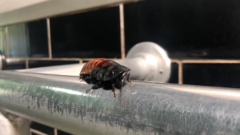
There are cockroaches roaming the aquarium at the Belle Isle Conservancy.
But don’t worry, they’re supposed to be there.
Unlike the smaller, more common roaches you might find in a dirty or old building, these cockroaches are Madagascar hissing cockroaches, who have their own exhibit at the conservancy and were given a chance to say hello to some fish while the aquarium is closed due to the COVID-19 pandemic.
Great Lakes Now
https://www.greatlakesnow.org/2020/05/covid-19-belle-isle-fish-and-insects-visitors/
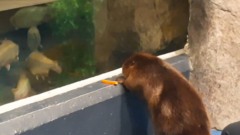
Masks or no, the otters at the Aquatarium at Tall Ships Landing in Brockville, Ontario, know exactly who’s in their den space.
“They really recognize us more by our smell and our boots,” said Jennipher Carter, senior aquarist at the Aquatarium. For the otters at least, adjusting to their caretakers all wearing masks didn’t take long.
Great Lakes Now
https://www.greatlakesnow.org/2020/05/ontario-aquatarium-covid-19-virtual-engagement/